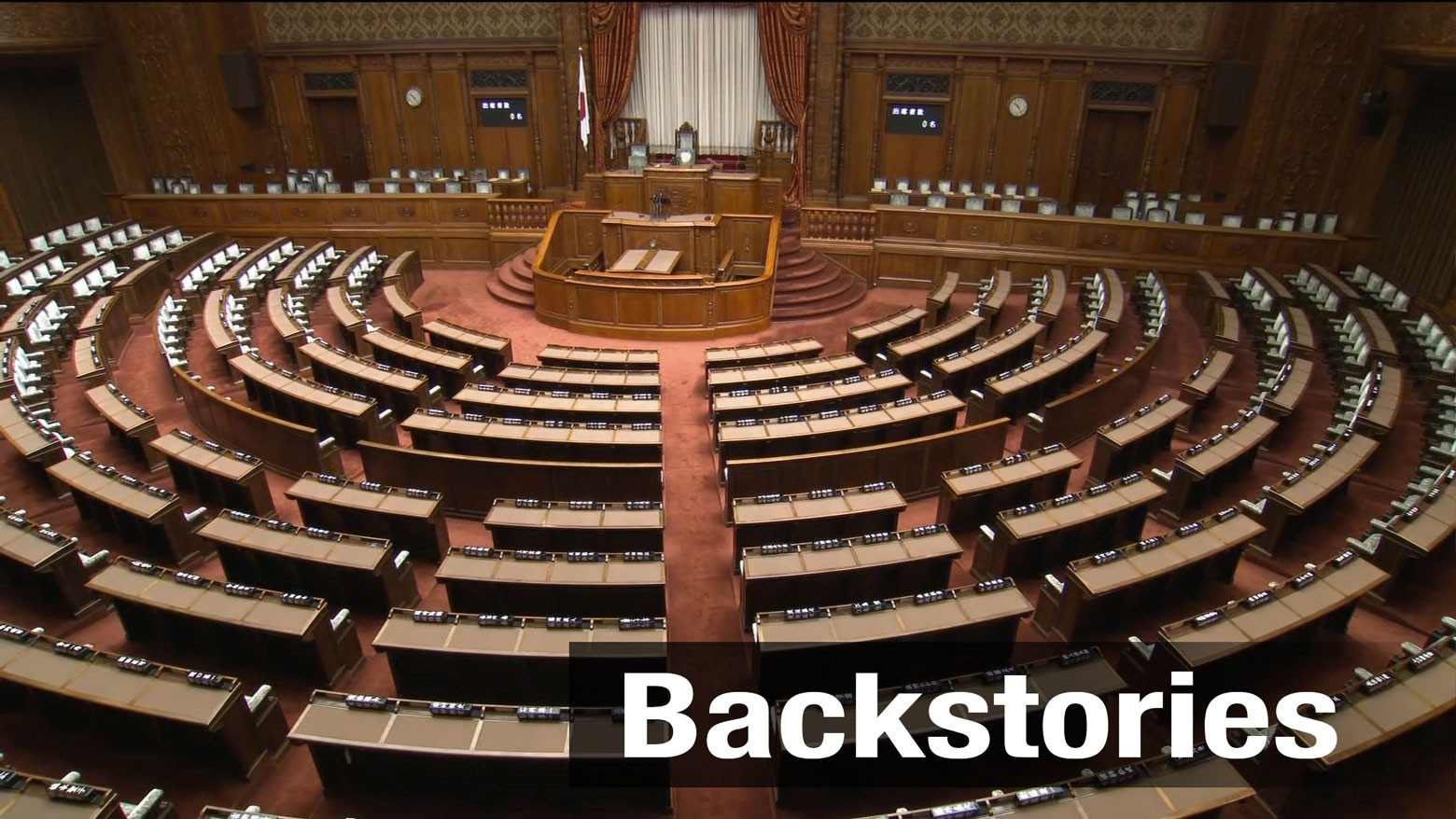Stagnant campaign
First of all, a low turnout indicates that the campaign may have been considered dull. According to the internal affairs ministry, the overall 48.8 percent showing was the second-lowest for a national election in the postwar period. The lowest was 44.5 percent in 1995.
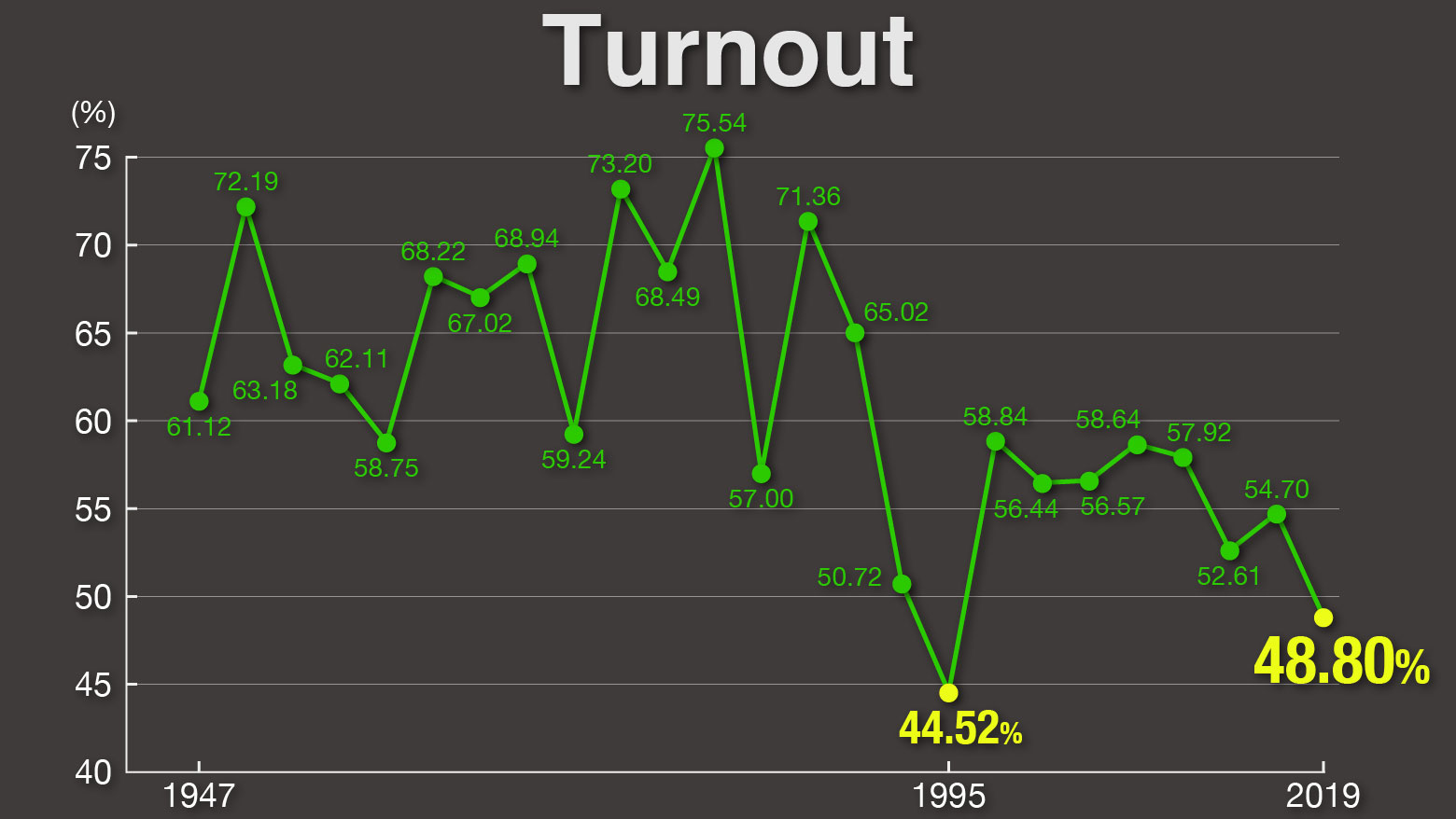
What were the issues?
NHK opinion polls before the election showed that social security and a planned consumption tax hike were the standout issues.
Fears about Japan's aging society and shrinking population have contributed to making social security a theme of recent elections. A draft report from an advisory panel to the Financial Services Agency raised controversy in the Diet just before the election.
It laid out projections that elderly couples will need massive savings to supplement their state pensions after retirement. The government refused to accept the findings -- a decision that attracted opposition criticism of an attempt to cover up an inconvenient truth.
Overall, 46 percent of respondents to Sunday's NHK exit polls said they considered the issue when voting, while 54 percent said they didn't. Among the people who took it into consideration, 35 percent said they voted for the LDP, with the biggest opposition party, the Constitutional Democratic Party, taking 21 percent.
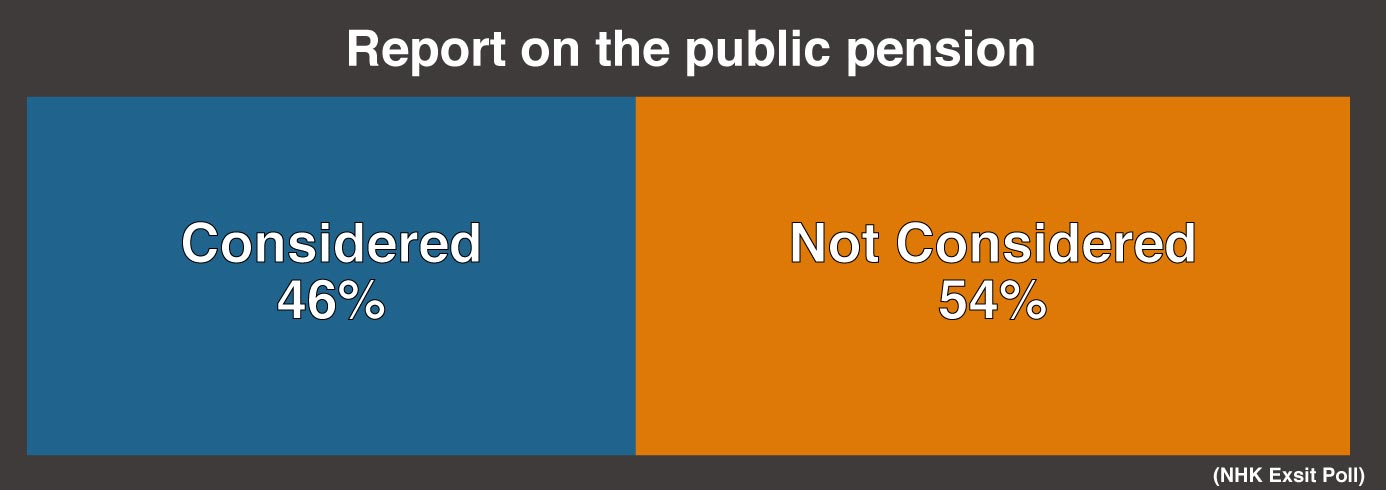
As for the consumption tax hike, Abe told NHK on election night that he wants to raise it in October, as scheduled. He said the fact that the ruling bloc secured a majority shows that people understand the need for the increase. Several party executives echoed his theme of voter understanding.
In the exit polls, 57 percent of respondents said they were against the hike, with 43 percent in favor. Despite that, the LDP won the support of nearly 30 percent of those opposed. Some 21 percent of the same group voted for the biggest opposition party.
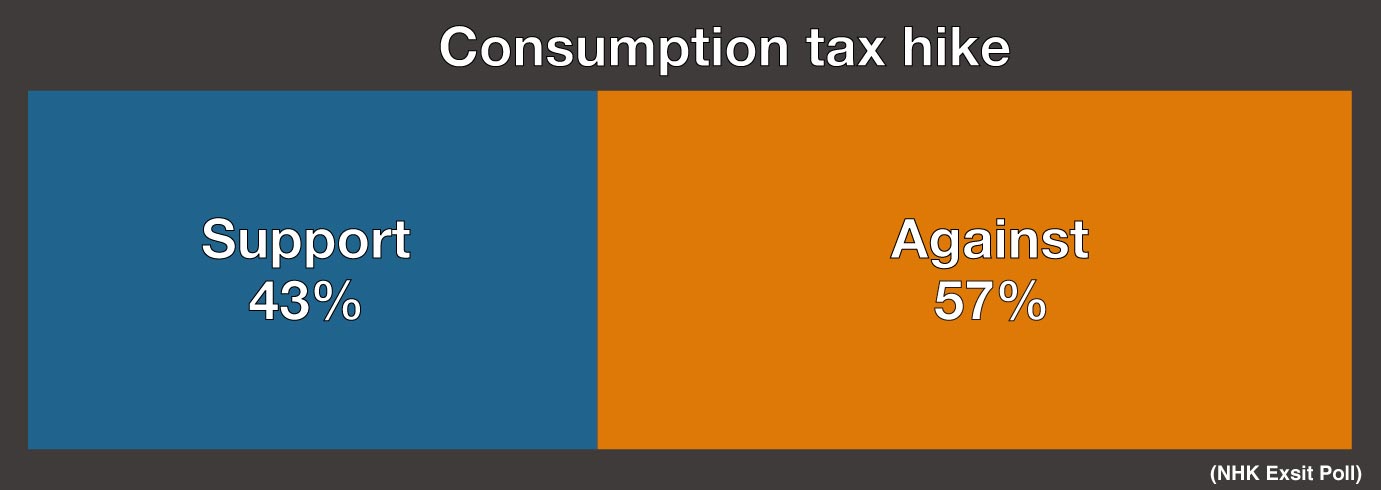
The coalition and lawmakers in favor of amending the Constitution fell short of the two-thirds of the chamber needed in both houses to put a Constitutional amendment proposal to a national referendum.
The LDP has put forward a plan that includes adding a reference to Japan's Self Defense Forces to Article 9 of the Constitution. The Article renounces war and prohibits Japan from maintaining a military.
Respondents were divided on the subject -- 36 percent felt the Constitution needed to be amended, while 33 percent said it did not and 31 percent said they couldn't say either way. Of those not in favor of change, over 30 percent said they voted for the CDP, more than 20 percent for the LDP and about 15 percent for the Japanese Communist Party.
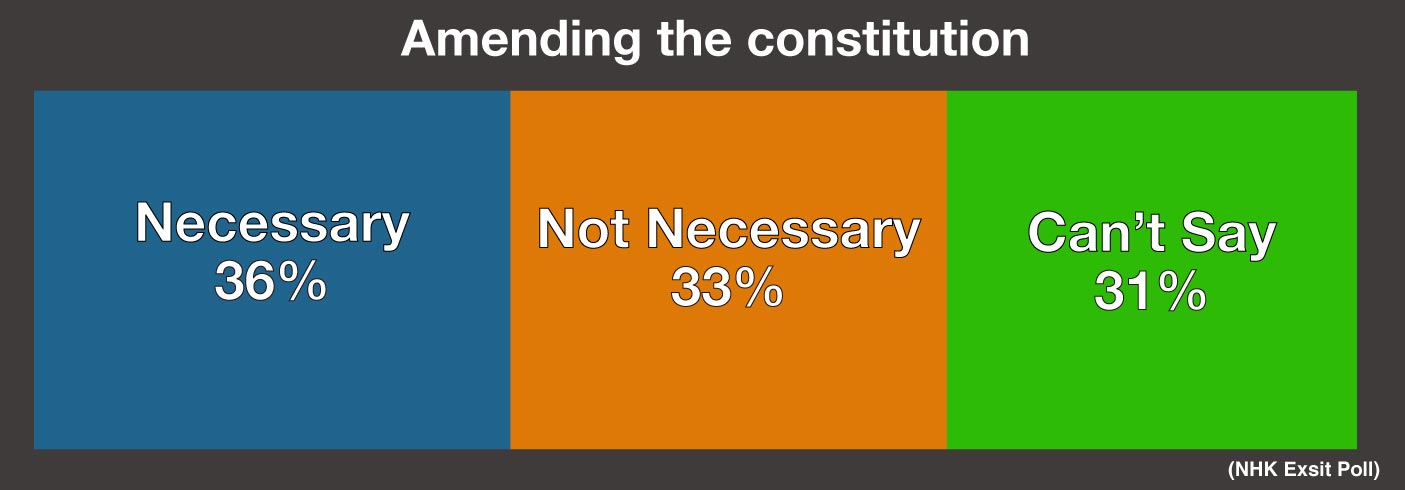
Abe said on Monday that he still wants to amend the Constitution in 2020, but that could prove difficult. In addition to the result of the election, coalition partner Komeito's Chief Representative Natsuo Yamaguchi said on Sunday night that there hasn't been sufficient debate on the matter. He added that calm analysis of the issue and more thorough debate are needed.
The PM also said that the Diet members should actively debate the matter, regardless of whether they belong to the ruling or the opposition camp. He stressed that newly elected lawmakers and other politicians from opposition parties are welcome to join discussions about amending the Constitution in coming Diet sessions.
Diversity in the Diet
This election saw more women running than ever before -- of 104 female candidates 28 were elected, matching the previous high from three years ago.
In addition, two candidates with disabilities, cerebral palsy and ALS, were elected for the first time. Both candidates stood for a new party called Reiwa Shinsengumi, which was founded in April.
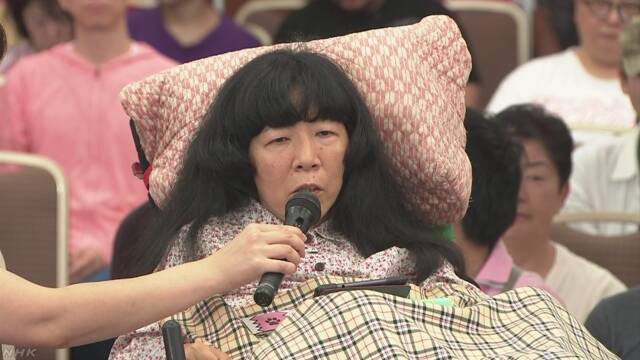
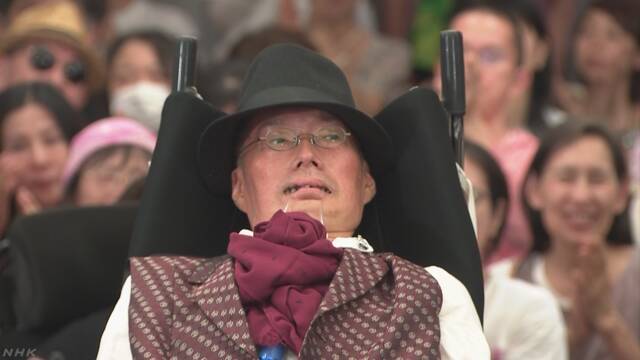
Their success is sure to spark debate on how best to support people with disabilities as they go about their work.
Abe told reporters on Monday that he wants to call an extraordinary session of the Diet on August 1 to select a new President of the Upper House. And he is expected to reshuffle his Cabinet and ruling party executives in mid-September.
